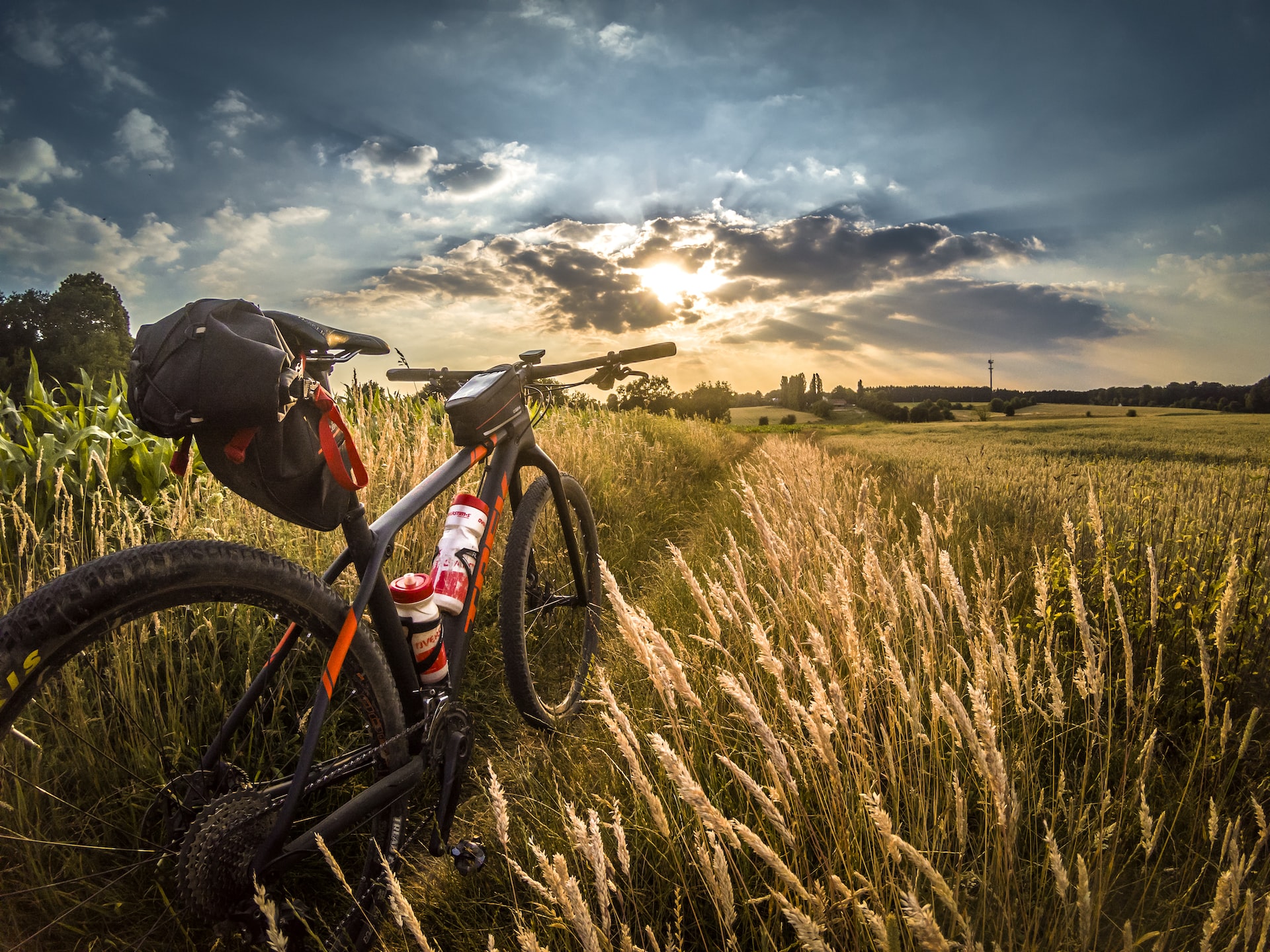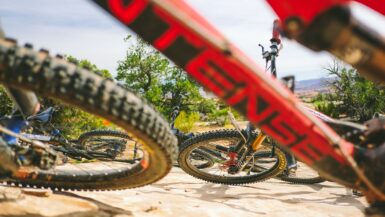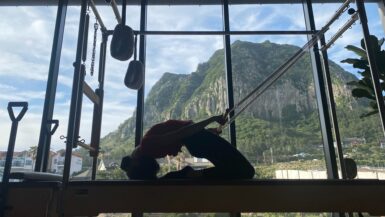Mountain biking is an increasingly popular recreational activity, offering an exciting way to traverse through terrain while getting a great workout. However, it can also significantly benefit some people with disabilities. Mountain biking promotes physical and mental health, increases balance and coordination, and provides opportunities for personal growth. This article will examine how mountain biking offers unique advantages for those with disabilities. We will explore the potential physical and mental benefits of mountain biking, discuss the necessary safety precautions, and highlight the importance of finding the right gear for those with disabilities.
Types of Disabilities
Participating in mountain biking can bring many physical and mental benefits to people with disabilities. The sport of mountain biking can be adapted to suit a variety of disabilities, including physical, sensory, and neurological disabilities.
Physical Disabilities
Mountain biking improves muscle strength, coordination, balance, and endurance. Adapted mountain biking techniques, such as using handcycles or tandems, can also help increase upper-body strength and allow individuals to get out and do something they enjoy with their friends or family.
Sensory Disabilities
Mountain biking is also an excellent way for those with sensory disabilities, such as those vision or hearing impairments, to gain independence and confidence. Specialized equipment, such as vibration indicators or GPS systems, can help mountain bikers with sensory disabilities take part in the sport.
Neurological Disabilities
Mountain biking can benefit those with neurological disabilities, as the sport can help to improve concentration, problem-solving skills, and reflexes. Special adaptive bikes, such as tricycles or recumbent bikes, can help people with limited mobility gain access to the sport. Mountain biking can also be a great way to help increase social interaction and confidence in people with neurological disabilities.
Adaptive and Assistive Technology
Thanks to advances in adaptive and assistive technology, mountain biking is now an enjoyable activity for people with disabilities. Adaptive cycling technology helps riders with disabilities to tailor their bicycle to their individual needs and capabilities. Popular customized approaches include:
- Hand-powered bicycles.
- Wheelchairs with unique wheel frames.
- Recumbent bikes with extra-wide seats.
Accessing the Trails
The Americans with Disabilities Act (ADA) ensures disabled riders have access to biking trails and parks. Mountain biking parks are also increasingly creating routes for adaptive cyclists. These trails have widened paths that can accommodate wheelchairs and hand-powered cycles, as well as roll-ups and roll-downs for traversing hills.
Safety and Security
To ensure safety and security, mountain biking parks and trails often provide specialized guides and equipment, such as off-road wheelchairs, to disabled riders. In addition, many parks and trails offer technical classes that teach disabled riders how to safely and effectively use their adaptive equipment.
Specialized Support
Organizations such as Mountains for All provide specialized support for adaptive cycling. These organizations offer resources such as accessible rides, organized events, and inclusive outdoor recreation experiences. By connecting riders with disabilities to special events, adaptive cycling networks allow people to share their stories and support each other.
Adaptive Cycling Benefits
Adaptive mountain biking offers numerous benefits to people with disabilities. Riders can enjoy exercise’s physical and mental benefits and the social connections that come with shared outdoor experiences. By uniting disabled riders, adaptive cycling can help to foster confidence, pride, and feelings of belonging.
Physical Benefits of Mountain Biking
Mountain biking can be a great source of exercise for people with disabilities, helping to improve muscular strength, coordination, and balance. Mountain biking can also assist in loosening tight muscles, joints, and ligaments. By providing an enjoyable, low-impact activity, mountain biking can reduce pain, improve physical conditioning, and can even help reduce stress levels.
Comfort and Mobility
Mountain biking is a highly accessible activity for people with disabilities. Using well-designed, comfortable, and technically sound bike components, mountain biking can be adapted to meet the individual needs of any rider. Specialized bikes are available in the market designed to make mountain biking more accessible and comfortable to riders with limited mobility.
Health Benefits
Mountain biking can help to improve overall physical health by providing valuable exercise to the muscles and joints. It is an aerobic activity that burns calories and helps to tone and strengthen muscles. Additionally, mountain biking can help to improve balance and coordination and increase endurance and flexibility.
Ease of Transportation
Mountain biking is a convenient mode of transportation for people with disabilities. Most mountain bikes are lightweight and compact, making them easy to transport, assemble, and store. This can be especially helpful for people with disabilities who may have difficulty with public transportation.
Expanding Social Circle
Mountain biking provides people with disabilities an opportunity to broaden their social circle and engage with other mountain bikers. Group and trail rides can offer an enjoyable and social activity where riders can meet new people, exchange stories, and encourage each other. This can be beneficial in developing newfound self-esteem and support networks.
Improves Self-Esteem
Mountain biking can help to improve self-esteem and self-confidence for people with disabilities. By mastering and overcoming technical terrain, riders can challenge themselves and experience a sense of accomplishment. This can help increase self-confidence as riders overcome obstacles and achieve their goals.
Psychological Benefits of Mountain Biking
Mountain biking can provide people with disabilities with a way to improve their mental health. It has been shown to help reduce stress and anxiety, increase confidence, and improve self-esteem. Studies have also found that mountain biking can improve physical and mental performance and help individuals cope with depression and PTSD.
Higher Self Esteem
The physical activity of mountain biking provides people with disabilities with increased self-esteem. Being able to pedal a bike over challenging terrain offers a sense of accomplishment that can help inspire and motivate an individual to continue pushing themselves.
Enhanced Wellbeing
Mountain biking can provide people with disabilities an opportunity to increase their physical and mental well-being. Studies have found that mountain biking can help relieve anxiety and depression, improve cognitive function, and increase focus. Mountain biking can also help individuals become more in tune with their physical being, increasing muscular strength, endurance, and balance.
Increased Social Connections
Another critical psychological benefit mountain biking can provide people with disabilities is increased social connections. Mountain biking allows individuals to connect with others with similar interests, leading to improved communication and problem-solving skills. Mountain biking can also be an excellent way for people with disabilities to engage in meaningful activities with friends and family, strengthening relationships and creating an effective social support system for individuals.
Improved Quality of Life
Mountain biking offers excellent potential for enhancing the quality of life for people with disabilities. It can provide individuals with increased physical and mental health benefits, improved self-esteem, enhanced well-being, and increased social connections. All of these factors can lead to overall improved quality of life.
Safety Considerations for People with Disabilities on the Trail
Mountain biking can be challenging for people with disabilities due to the need to traverse uneven surfaces and obstacles. Additionally, certain medical conditions can be exacerbated by the physical exertion and extreme states of mountain biking. It is vital for individuals with disabilities to consider their physical limitations and medical needs when deciding whether to try mountain biking.
Essential Safety Gear for People with Disabilities
When engaging in mountain biking, people with disabilities need to wear the proper safety gear. A good helmet is essential to protect against head injury, and rugged clothing such as long pants and long sleeves are recommended to protect against scrapes and cuts. Additionally, mountain biking gloves can provide much-needed traction when navigating treacherous terrain.
Adaptive Biking Options for People with Disabilities
For people with disabilities, adaptive mountain biking options are available. Adaptive bikes are specifically designed to allow riders with disabilities to experience the thrill of mountain biking. Additionally, many adaptive bikes can accommodate a variety of disabilities, ranging from physical to cognitive impairments.
Guidelines for Safe Mountain Biking for People with Disabilities
When engaging in mountain biking, individuals with disabilities must follow specific guidelines to ensure a safe and enjoyable experience:
- Riders should become familiar with the terrain, as unexpected changes in the landscape can lead to accidents.
- Riders should stay aware of their physical limitations and not push themselves beyond their comfort level.
- Riders should go mountain biking with a companion who can assist.
The Joys of Experiencing Nature on a Mountain Bike
With its ability to traverse diverse terrain, mountain biking provides a unique opportunity for people with disabilities to experience the freedom of getting outdoors. Mountain biking allows for a sense of accomplishment that may be different than a traditional bike ride. It also provides access to places that are not always easy to experience due to physical limitations. For people with disabilities, going on a mountain bike ride is a chance to feel liberated, to have the wind in their faces, and to experience the outdoors in an active and rewarding way. Whether the ride is long or short, mountain biking offers a joyous experience that allows people with disabilities to explore nature’s wonders.






Leave a reply